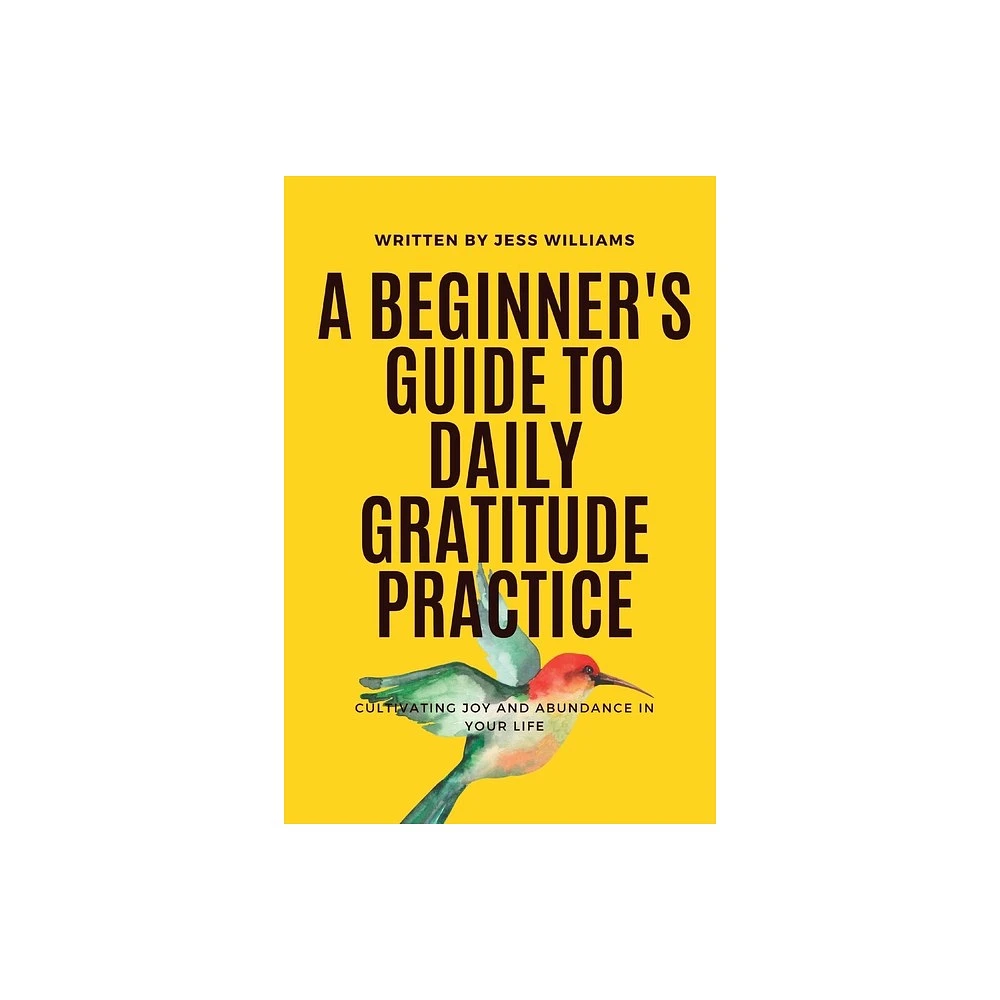Cultivating gratitude involves recognizing and appreciating the positive aspects of life. This practice improves mental well-being and overall happiness.
Gratitude is a powerful tool for enhancing mental health and fostering a positive outlook on life. By regularly acknowledging and appreciating the good things around us, we can shift our mindset towards positivity. Simple practices like journaling, expressing thanks, and mindfulness can make a significant difference.
Gratitude helps reduce stress, improve relationships, and boost overall happiness. This comprehensive guide explores various gratitude practices to help you cultivate this life-enhancing habit. Embrace the journey of gratitude and experience profound changes in your mental and emotional well-being. Start integrating these practices into your daily routine to reap the benefits and lead a more fulfilling life.
Credit: www.google.com
The Science And Benefits Of Gratitude
Cultivating gratitude boosts mental health, improves relationships, and enhances overall well-being. This guide explores effective gratitude practices, offering practical tips for daily life. Embrace gratitude to transform your mindset and enrich your life experiences.
Gratitude is more than just saying “thank you”. It’s a powerful emotion that can reshape your outlook on life. Scientists have long studied the impact of gratitude on our well-being, uncovering numerous benefits that go beyond simple politeness.
The Psychological Benefits Of Gratitude
Gratitude has a profound effect on mental health. It can lower stress and boost happiness.
- Reduced Stress Levels: Practicing gratitude helps decrease cortisol, the stress hormone.
- Enhanced Mood: Gratitude exercises can increase serotonin and dopamine levels.
- Better Sleep: Those who keep a gratitude journal tend to fall asleep faster and enjoy better rest.
- Increased Resilience: Grateful people are more capable of handling life’s challenges.
The Physical Health Benefits Of Gratitude
Not only does gratitude impact your mind, but it also offers numerous physical health benefits.
Feeling grateful can lead to:
- Improved Heart Health: Lower blood pressure and a healthier heart rate.
- Better Immune Function: Strengthened immune system, making you less susceptible to illnesses.
- Reduced Pain Levels: Some studies show a decrease in physical pain perception.
- Enhanced Longevity: People who practice gratitude may live longer, healthier lives.
How Gratitude Affects Relationships
Gratitude can transform your interactions with others. It fosters deeper connections and mutual respect.
- Stronger Bonds: Expressing gratitude strengthens relationships with friends and family.
- Increased Empathy: Grateful individuals are more empathetic and understanding.
- Better Communication: Gratitude encourages open and positive communication.
- Enhanced Social Support: People who practice gratitude often receive more support from their social circles.
The Neuroscience Behind Gratitude
Understanding the brain’s response to gratitude can shed light on why it feels so good.
Gratitude activates several brain regions:
- Prefrontal Cortex: Involved in managing emotions and decision-making.
- Anterior Cingulate Cortex: Plays a role in regulating blood pressure and heart rate.
- Hypothalamus: Responsible for essential bodily functions, including sleep and metabolism.
- Reward Systems: Engages the brain’s reward systems, releasing dopamine and making you feel happier.
By incorporating gratitude into daily life, you can enjoy these science-backed benefits. Your mental, physical, and social well-being will thank you.
Different Gratitude Practices And How To Implement Them
Explore various gratitude practices such as journaling, meditation, and expressing thanks. Implement these methods daily to foster a positive mindset.
Gratitude can transform lives. Implementing various gratitude practices can enrich daily experiences. Here’s how you can incorporate different methods into your routine.
Gratitude Journaling
Gratitude journaling is a simple yet effective practice. By writing down things you are grateful for, you can shift your focus to positivity.
- Daily entries: Write down three things you are thankful for each day.
- Reflective writing: Spend time reflecting on why you are grateful for these things.
- Consistency: Make journaling a daily or weekly habit.
Gratitude Meditation
Meditation focused on gratitude helps cultivate a mindful appreciation for life’s blessings. This practice can be integrated into your regular meditation routine.
- Set an intention: Begin your session by setting a gratitude-focused intention.
- Visualize: Picture people or moments you are thankful for.
- Deep breathing: Use deep breaths to anchor your focus on gratitude.
Thank You Notes
Writing thank you notes is a heartfelt way to express gratitude. This practice not only strengthens relationships but also fosters a sense of connection and appreciation.
- Personal messages: Write personalized notes to people who have impacted you.
- Specificity: Mention specific actions or qualities you are grateful for.
- Regular practice: Make it a habit to send out thank you notes regularly.
Gratitude Affirmations
Gratitude affirmations involve repeating positive statements. This practice can help rewire your brain to focus on the positive aspects of life.
- Daily routine: Incorporate affirmations into your morning or evening routine.
- Positive language: Use affirmative and positive language in your statements.
- Consistency: Repeat your affirmations regularly to reinforce positive thinking.
Acts Of Kindness
Engaging in acts of kindness is a powerful way to express gratitude. This practice not only benefits others but also boosts your own sense of well-being.
- Small gestures: Perform simple acts like holding the door or complimenting someone.
- Volunteer work: Dedicate time to helping others in your community.
- Mindfulness: Be mindful of opportunities to be kind throughout your day.
Gratitude Walks
Taking a walk while focusing on things you are grateful for can be a refreshing and grounding practice. This combines physical activity with a focus on gratitude.
- Nature connection: Walk in nature and appreciate its beauty.
- Mindful walking: Pay attention to your surroundings and what you are thankful for.
- Regular practice: Make gratitude walks a part of your routine.
Sharing Gratitude
Sharing what you are grateful for with others can deepen connections and spread positivity. This can be done in group settings or one-on-one conversations.
- Group discussions: Share gratitude in group settings like family dinners.
- Social media: Post about things you are grateful for on social platforms.
- One-on-one: Have conversations with friends or family about what you appreciate.
Implementing these gratitude practices can significantly enhance your life. Try incorporating a few of these methods into your daily routine to experience their benefits.
The Impact Of Gratitude On Mental And Physical Health
Gratitude significantly enhances mental well-being by reducing stress and anxiety. It also boosts physical health, improving sleep and heart function.
Gratitude can transform our lives, bringing joy and fulfillment. It’s not just a fleeting feeling; it has tangible benefits for both mental and physical health. Let’s explore how gratitude impacts our well-being.
Enhanced Mental Health
Gratitude is a powerful tool for mental well-being. Here’s how it helps:
- Reduces stress: Regular gratitude practice lowers cortisol levels.
- Boosts mood: Feeling thankful increases serotonin and dopamine.
- Improves resilience: Gratitude strengthens coping mechanisms.
- Promotes optimism: Encouraging a positive outlook on life.
Better Sleep Quality
A thankful mindset can lead to restful nights. Here’s why:
- Eases anxiety: Reducing anxious thoughts helps you fall asleep faster.
- Improves sleep duration: Better emotional state extends sleep periods.
- Enhances sleep quality: Positive feelings lead to deeper, more restorative sleep.
Strengthened Relationships
Gratitude nurtures stronger bonds with loved ones:
Expressing appreciation fosters mutual respect and deepens connections. People who practice gratitude often communicate better, enhancing their relationships. It also builds trust and encourages reciprocal kindness, creating a supportive environment.
Physical Health Benefits
Gratitude isn’t just good for the mind; it benefits the body too:
- Boosts immune system: Positive emotions enhance immune function.
- Reduces pain: Regular gratitude practice lowers perceived pain levels.
- Improves heart health: Lower stress levels contribute to a healthier heart.
- Increases energy: Feeling grateful boosts overall vitality.
Enhanced Empathy
Feeling grateful can make us more empathetic:
Gratitude shifts focus from self to others. This increased awareness fosters greater empathy and understanding. People who practice gratitude tend to be more compassionate, which strengthens social bonds.
Increased Motivation
Gratitude can fuel our drive to achieve:
- Encourages goal-setting: Feeling thankful inspires ambition.
- Boosts perseverance: Gratitude helps overcome obstacles.
- Enhances productivity: Positive emotions lead to better focus.
- Fosters creativity: A grateful mindset unlocks innovative thinking.
Incorporating gratitude into daily life can create a ripple effect, improving both mental and physical health. So, why not start today?
How To Overcome Obstacles In Developing A Gratitude Practice
Overcoming obstacles in developing a gratitude practice involves consistency and mindfulness. Start with small daily acknowledgments and gradually expand your practice.
Developing a gratitude practice can be immensely rewarding, yet obstacles often arise. Understanding and tackling these challenges is key to cultivating a consistent and meaningful practice.
Identifying Common Obstacles
Certain barriers can hinder your journey towards gratitude. Recognizing them is the first step:
- Lack of Time: Many people feel they are too busy to practice gratitude.
- Negative Mindset: Focusing on problems can make gratitude seem difficult.
- Unrealistic Expectations: Expecting immediate results can lead to frustration.
- Inconsistency: Sporadic practice can diminish its benefits.
Strategies To Overcome Obstacles
Implementing specific strategies can help you navigate these challenges. Here’s how you can tackle them:
- Set Aside Time: Schedule a few minutes daily for gratitude.
- Shift Your Focus: Train your mind to see positives, even in tough situations.
- Manage Expectations: Understand that benefits may take time to manifest.
- Create Reminders: Use tools like apps or notes to prompt daily practice.
Practical Tips For Consistency
Maintaining a consistent gratitude practice is essential. Here are some practical tips:
- Choose a Regular Time: Align your practice with daily routines, like mornings or evenings.
- Start Small: Begin with listing one or two things you are grateful for.
- Use a Journal: Writing down your thoughts can solidify your practice.
- Share with Others: Discussing gratitude with friends or family can reinforce the habit.
Building A Supportive Environment
Creating an environment that supports your gratitude practice is crucial. Here’s how you can do it:
- Surround Yourself with Positivity: Engage with positive people and media.
- Declutter Your Space: A tidy environment can foster a clear mind.
- Celebrate Small Wins: Acknowledge and reward your progress regularly.
- Practice Mindfulness: Being present helps you notice things to be grateful for.
Adapting To Life Changes
Life is full of changes, and your gratitude practice should adapt accordingly. Consider these approaches:
- Be Flexible: Adjust your practice to fit different life stages or situations.
- Reframe Challenges: View obstacles as opportunities to grow gratitude.
- Seek Support: Don’t hesitate to ask for help from loved ones or professionals.
- Stay Patient: Allow yourself time to adjust and maintain your practice.
By recognizing and addressing these obstacles, you can enhance your gratitude practice and enjoy its many benefits.
Stories And Testimonials About The Power Of Gratitude
Discover heartwarming stories and testimonials that reveal the transformative power of gratitude. Learn practical tips for cultivating gratitude in everyday life.
Gratitude has the remarkable ability to transform lives. Real stories and testimonials reveal how this simple practice can lead to profound changes. Let’s explore some compelling narratives that illustrate the power of gratitude.
Personal Healing Through Gratitude
Many individuals have shared their personal journeys of healing through gratitude. These stories highlight the emotional and mental benefits of maintaining a grateful outlook.
- Chronic Illness Relief: Several people with chronic illnesses report improved mental states and reduced stress after practicing gratitude.
- Emotional Resilience: Those facing significant life challenges find that gratitude helps build emotional resilience and a more positive outlook.
- Improved Relationships: Practicing gratitude strengthens bonds and deepens connections with loved ones.
Professional Success Stories
Gratitude doesn’t just impact personal lives; it can also lead to professional success. Here are some inspirational examples:
- Career Advancement: Professionals often credit gratitude for their career growth and improved workplace relationships.
- Leadership Skills: Many leaders find that gratitude enhances their leadership qualities, making them more empathetic and effective.
- Team Dynamics: Teams practicing gratitude experience better collaboration, higher morale, and increased productivity.
Testimonials From Gratitude Journals Users
Gratitude journals have become a popular tool for many seeking to incorporate gratitude into their daily lives. Here’s what users have to say:
Keeping a gratitude journal can lead to life-changing benefits, as described by many users.
- Increased Happiness: Regular journal users often report heightened levels of happiness and satisfaction.
- Better Sleep: Many find that writing in their gratitude journal before bed improves their sleep quality.
- Stress Reduction: Users frequently mention reduced stress and anxiety levels after journaling regularly.
Impact On Mental Health
The positive effects of gratitude on mental health are well-documented. Here are some powerful testimonials:
- Depression Management: Individuals dealing with depression find that gratitude practices help manage their symptoms.
- Anxiety Reduction: Many report a significant decrease in anxiety through consistent gratitude exercises.
- Enhanced Mindfulness: Practicing gratitude often leads to greater mindfulness and present-moment awareness.
Community And Social Benefits
Gratitude can ripple outwards, affecting not just individuals but entire communities. Some powerful stories illustrate this effect:
Gratitude practices foster stronger communities and social bonds. Here are some examples:
- Community Building: Grateful communities often see increased volunteerism and stronger neighborhood connections.
- Social Support: People who practice gratitude tend to offer more social support and receive it in return.
- Collective Well-being: Communities focusing on gratitude report higher overall well-being and happiness levels.
These stories and testimonials illustrate the transformative power of gratitude. Whether it’s personal healing, professional success, or community well-being, the impact of gratitude is profound and far-reaching.

Credit: shopthemarketplace.com
Frequently Asked Questions
What Is Gratitude Practice?
Gratitude practice involves regularly acknowledging and appreciating the positive aspects of life. It can be done through journaling, meditation, or simple reflection. This practice helps improve mental well-being and fosters a positive mindset.
How Can I Start A Gratitude Journal?
Start a gratitude journal by writing down three things you’re thankful for each day. Consistency is key. Reflect on both big and small moments. Over time, this habit helps shift your focus towards positivity.
Why Is Gratitude Important For Mental Health?
Gratitude is important for mental health because it fosters positive emotions. It reduces stress and anxiety by shifting focus from negative to positive aspects. This practice enhances overall well-being and life satisfaction.
Can Gratitude Improve Relationships?
Yes, gratitude can improve relationships. Expressing appreciation strengthens bonds and fosters mutual respect. Regularly acknowledging your partner’s positive actions can enhance emotional connection and trust.
Conclusion
Gratitude practices can transform your life, fostering a positive outlook. Start small and be consistent. Embrace daily gratitude journaling, mindful moments, and expressing thanks. These simple acts can significantly enhance well-being. Make gratitude a habit to enjoy a more fulfilling, happier life.
Begin your gratitude journey today for lasting change.

